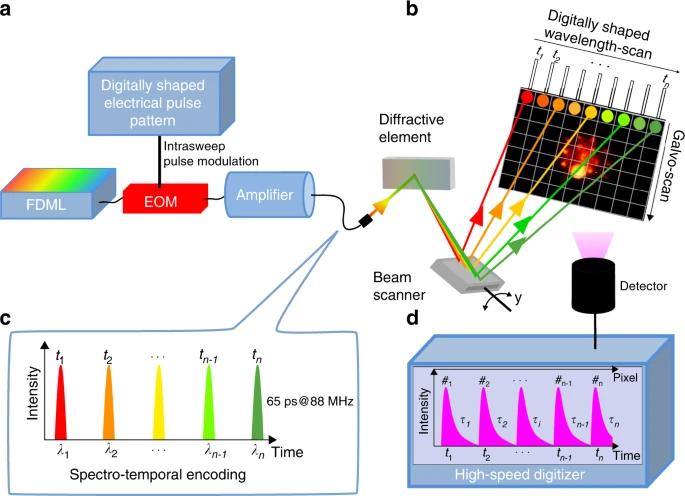public projects
SWEPT LASERS FOR NON-INVASIVE DIAGNOSTICS
EU Projekt SWEEPICS
Within the EU project “SWEEPICS”, the international research team investigates and realizes innovative laser and microscopy technologies for precise and fast medical diagnoses. By developing animal-free tests on artificially bred organoids, the project is researching more cost-effective and faster drug development, which contributes to advances in medicine and an ethical approach to animal testing. The international research consortium consists of institutes and companies from Germany, Sweden, Hungary, Austria and Switzerland.
Advanced laser and microscopy technology
SWEEPICS aims to advance medical diagnostics through the development of state-of-the-art coherent laser sources. The project includes research on a key laser technology, the so-called pulsed swept source laser, and an advanced microscopy technology, the so-called SLIDE microscopy. In combination, these technologies enable high-speed imaging of cellular models in high-throughput microfluidic microscopy. Medical Laser Center Lübeck is responsible for the technology transfer of these innovative technologies to users in the bio labs.
Less animal testing thanks to three-dimensional organoids
An important part of the project is the cultivation of miniature organs in the laboratory, so-called organoids, which are interspersed with blood vessels. Prof. Josef Penninger from the Medical University of Vienna, a renowned expert in this field, is a partner in the SWEEPICS project. Prof. Sebastian Karpf, the coordinator of SWEEPICS, is confident: “Through the SWEEPICS project, we will advance the cellular research of new drugs on model systems, so-called organoids. This new technological approach should make it possible to work without laboratory animals in the future, which promises lower costs and faster process times for the development of new drugs. Our research into new swept-source lasers and laser-based microscopy methods can make a decisive contribution here. The interdisciplinary research consortium with its broad expertise in the fields of laser technology, microscopy, image analysis and biotechnology covers the entire spectrum of modern biomedical optics, which will ensure the success of the EU-funded SWEEPICS project.”
High throughput for efficient drug development
SWEEPICS will research and develop the next generation of swept-source lasers that offer flexible pulse modulation, high output power and coherent multi-wavelength output, enabling multiple new applications. This technology will be used in innovative use cases based on novel blood vessel organoids to enable animal-free drug testing and infection studies. The SWEEPICS laboratory system will develop a new diagnostic procedure through the three-dimensional imaging of organoids and will enable very efficient drug development with a throughput of up to 72,000 organoids per hour.
The project results promise significant advances in laser technology for medical diagnostics. It is expected to enable high-resolution three-dimensional cellular images with high accuracy and speed, leading to a drastic reduction in animal testing and faster diagnostic results, which are crucial for the research and development of new drugs.


SLIDE: Specto-temporal Laser Imaging by Diffractive Excitation
